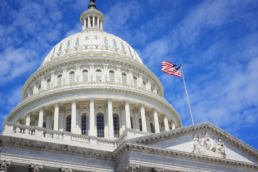Utility coordination is a linchpin in the realm of construction and project management. Given the multifaceted nature of this endeavor, Commun-ET knows that effective communication between agencies, utilities, design firms, and municipalities is crucial for a project’s success. In this blog post, we’ll dive into how to navigate the complexities of utility coordination, complementing Commun-ET’s established best practices in this domain.
Understanding Utility Coordination
Utility coordination serves as the backbone for ensuring that construction projects run smoothly, on time, and within budget. This multidisciplinary endeavor aims to synchronize various utility services such as water, gas, and electricity with planned construction activities. By preventing conflicts and overlaps with existing or planned utility infrastructure, utility coordination ensures that project implementation proceeds seamlessly.
Types of Utilities Involved
The types of utilities that need to be coordinated can vary significantly based on the project’s scope and location. Here are some commonly involved utilities:
Public Utilities
- Water Lines: These include both freshwater supply lines and wastewater lines.
- Electric Lines: Overhead and underground electrical lines need to be considered.
- Natural Gas: Gas lines are sensitive and require careful handling to prevent leaks or other hazards.
Private Utilities
- Telecommunications: This can include internet, cable, and phone lines.
- Fiber Optics: These lines are becoming increasingly common and may exist in newer developments.
- Irrigation Systems: Particularly relevant for residential and park areas.
Sustainable Utilities
- Solar Panels: If your project incorporates green energy, these need to be coordinated as well.
- Wind Turbines: Similar to solar panels, any wind energy installations need to be factored in.
Each of these utilities presents its own set of challenges, from legal constraints to engineering hurdles. Therefore, knowing the types of utilities involved is the first step in planning a successful utility coordination strategy.
Importance of Accurate Data in Utility Coordination
In the world of utility coordination, data is not just numbers or information; it’s the roadmap to successful project execution. Accurate data acts as a cornerstone, enabling better planning, safer work environments, and a streamlined construction process. Below, we delve deeper into why accurate data is so pivotal in utility coordination.
Elimination of Conflicts
When construction and utility data is precise, it forms the foundation for effective coordination. Accurate data, often obtained through detailed site surveys and existing blueprints, allows project managers to:
- Spot Red Flags: Early identification of potential conflicts with existing utility lines means project teams can make data-driven decisions to reroute utilities or alter construction plans.
- Minimize Rework: Eliminating the need for design alterations after construction has begun reduces both delays and costs, keeping the project on budget and on schedule.
Regulatory Compliance
Compliance with regulatory standards is more than just a legal necessity; it’s also a measure of the project’s overall quality and integrity. Accurate data plays a critical role in:
- Permit Acquisition: With accurate data, filling out permit applications becomes a straightforward process, reducing the likelihood of delays due to errors or omissions.
- Inspection Readiness: When all utilities are installed according to regulations, projects are more likely to pass inspections the first time around, avoiding costly and time-consuming re-inspections.
Safety Measures
Utility coordination involves risks ranging from minor accidents to catastrophic events, emphasizing the need for impeccable data. Accurate information:
- Prevents Accidents: Knowing the exact location of utility lines helps avoid accidental strikes, which can lead to dangerous situations like gas leaks or electrical fires.
- Enhances Work Safety: Accurate data equips the workforce with the knowledge they need to implement safety measures, like installing protective barriers around utility lines.
Budgeting and Scheduling
At the intersection of planning and execution lies the project’s budget and schedule. Data accuracy is vital for:
- Cost Estimation: Inaccurate data can result in underestimations, leading to budget overruns. Accurate data provides a more realistic cost projection, allowing for more effective financial planning.
- Resource Allocation: Knowing exactly what needs to be done, and where, allows project managers to allocate resources more efficiently, avoiding idle manpower or machinery.
- Timeline Accuracy: With precise data, a realistic timeline can be set and more strictly adhered to, benefitting not just the project team but also stakeholders and clients.
Significance of Utility Coordination in Project Success
The success of a construction project is often a finely orchestrated endeavor, involving multiple stakeholders from architects and engineers to contractors and utility providers. Given Commun-ET’s focus on effective communication, it’s no surprise that the ethos of successful utility coordination also revolves around the timely and accurate flow of information. Below are the key areas where utility coordination significantly impacts the overall project success.
Timely Decision-Making
Utility coordination acts as a catalyst for timely decision-making. When all parties are on the same page, thanks to well-coordinated efforts:
- Streamlined Processes: Schedules are adhered to, and tasks are completed in a time-efficient manner.
- Reduced Delays: The likelihood of unforeseen obstacles disrupting the workflow is minimized, leading to smoother operations.
Risk Mitigation
In any construction project, risks are inevitable. However, effective utility coordination can substantially mitigate these risks:
- Safety: By ensuring that all utility locations are accurately identified and properly managed, the risk of accidents like gas leaks or electrical faults is minimized.
- Financial Risks: Accurate data and effective communication help in proper budgeting, thus avoiding the financial strain caused by unexpected costs.
Regulatory Compliance and Legal Safety
No project wants to be entangled in legal issues, and here again, utility coordination proves to be invaluable:
- Adherence to Guidelines: Effective coordination ensures that all utility installations and modifications comply with local, state, and federal laws.
- Avoidance of Penalties: Being compliant means you are less likely to face legal repercussions, thereby safeguarding the project from potential financial and reputational damage.
Stakeholder Satisfaction
Last but not least, successful utility coordination fosters a sense of trust and satisfaction among all stakeholders:
- Transparency: Open and effective communication keeps everyone in the loop, setting clear expectations and reducing uncertainties.
- Quality Outcome: When utilities are effectively coordinated, the end result is a project that not only meets but often exceeds, quality expectations.
Technological Tools
In today’s digital age, technological tools have become indispensable for effective utility coordination. The precision, speed, and convenience these tools offer are unparalleled compared to traditional methods. Here are some commonly used tools:
GIS (Geographic Information Systems)
GIS is pivotal for mapping and analyzing the geographic locations of utilities. The spatial intelligence offered by GIS software aids in effective planning and decision-making. With real-time data analysis, project managers can spot conflicts early and make necessary adjustments.
CAD (Computer-Aided Design)
CAD software is used for both 2D drawings and 3D modeling of the utility infrastructure. This provides engineers and designers a visual representation of how utilities will be laid out, making it easier to identify and solve design issues beforehand.
Project Management Software
Specialized project management software tailored for construction and utility projects can be invaluable. These tools offer features like task tracking, scheduling, and document management, making it easier to coordinate between different teams and stakeholders.
The Roadmap to Successful Utility Coordination
Utility coordination is not merely a task on a checklist but a strategic endeavor that brings together a myriad of disciplines, stakeholders, and data points. Its successful execution requires a blend of accurate information, effective communication, and advanced technological tools, something that Commun-ET is deeply committed to.
From identifying the types of utilities involved in a project to ensuring regulatory compliance and stakeholder satisfaction, the significance of utility coordination is multi-faceted. It acts as the linchpin that holds together construction schedules, budgets, and safety protocols. Furthermore, it allows for timely decision-making and risk mitigation, thereby influencing the project’s overall success and integrity.
In today’s rapidly evolving construction landscape, technological advancements like GIS, CAD, and project management software have become invaluable. They not only streamline the process but also elevate the quality of work, providing an edge in this highly competitive market.
To navigate the complex world of utility coordination, one must be well-equipped with the right information, tools, and expertise. Remember, when utility coordination is conducted effectively, everyone—from the construction workers on the ground to the project stakeholders—stands to benefit.
At Commun-ET, we understand that utility coordination is much more than a procedural necessity; it’s a cornerstone for building a better and more efficient future for all involved. As we continue to evolve, we remain steadfast in our commitment to facilitating effective utility coordination strategies, setting the stage for successful, safe, and timely project completions.
Thank you for reading. If you have further questions or would like to know how Commun-ET can assist you in your next project, please feel free to contact us.






